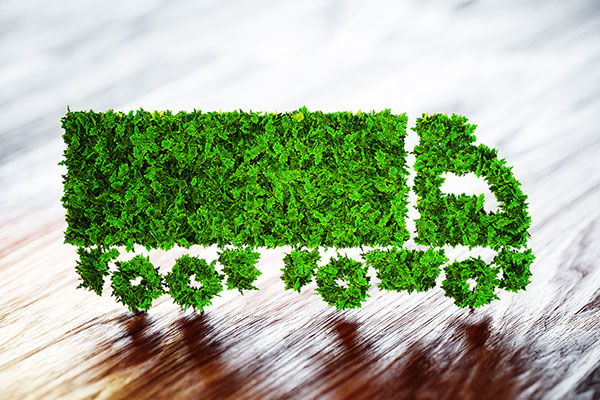Werner CEO Leathers warns of supply chain effects with overzealous clean truck regulations
The chief executive of one of America's largest trucking fleets is warning of the unintended consequences of “an avalanche” of state and federal mandates for electric trucks. Derek Leathers, president and CEO of Werner Enterprises, the nation's sixth-largest truckload carrier, told LM that overzealous state and federal regulators threaten the nation's fragile supply chain.
The chief executive of one of America’s largest trucking fleets is warning of the unintended consequences of “an avalanche” of state and federal mandates for electric trucks.
Derek Leathers, president and CEO of Werner Enterprises, the nation’s sixth-largest truckload carrier, told LM that overzealous state and federal regulators threaten the nation’s fragile supply chain.
Asked what is the most important (or nagging) regulation on the table for the trucking industry, Werner’s Leathers did not linger.
“The avalanche of mandates for electrification of heavy-duty trucking,” he told LM.
Leathers said Werner wants partners in state government who recognize taking the internal combustion engine off roadways by 2040 or 2045 could have ramifications on fragile supply chains, not to mention the electric grid.
Road transport vehicles, including trucking, account for 12% of global carbon dioxide (CO2) emissions. Yet trucking officials often feel they are being portrayed as the bad guys opposing cleaner-running trucks.
“Werner takes pride in reducing emissions from diesel particulate matter, CO2 and other known pollutants, while running the cleanest technology on the market,” Leathers said.
Looking ahead, Werner recommends a “careful transition” to electric—along with hydrogen, compressed natural gas (CNG) and other energy sources—as long as the utilities and the nation’s infrastructure allow.
“I’m excited about the momentum and investment occurring in our industry relative to alternative fuel types,” Leathers said.
Overarchingly, when it comes to alternative fuels, Leathers said Werner is invested in learning more about and are in various testing phases for the following: renewable diesel fuel, renewable natural gas, hydrogen and ethanol.
•Renewable diesel fuel: “This fuel is being used today in our fleet and is increasing in usage across the industry,” he said.
Renewable diesel can be made from multiple feedstocks and can be used to fully replace diesel or can be blended with any fuel amount. With proven results in both carbon dioxide and nitrogen oxide emissions when compared to petroleum diesel, it has myriad other benefits, including truck maintenance improvements.
The Department of Energy states renewable diesel fuels’ benefits include engine and infrastructure compatibility, fewer emissions and more flexibility. Incentivizing more manufacturers to create this fuel can have a positive impact on carbon emissions when compared to standard diesel today.
•Renewable natural gas: This is another area where Werner is in testing phases with the new Cummins X15N natural gas engine. Renewable natural gas (RNG) is a biogas that comes from a variety of sources, including municipal landfills, water purification facilities and livestock farms, among many other sources. It can be much cleaner in carbon emissions than diesel. This technology is built on a global internal combustion engine (ICE) platform by Cummins.
“Following the testing phase completion with Cummins, this will become an everyday purchase option for fleets,” Leathers said.
•Hydrogen engines from the leading original equipment manufacturers (OEMs) and infrastructure plans will be expanded in the coming years, which is another strong path to reduce emissions. Nebraska, where Werner’s corporate headquarters resides, is currently working with Missouri and Iowa through the Mid-Continent Clean Hydrogen Hub (MCH2.org) to obtain significant government funding via a grant application with the Department of Energy.
“The funding would keep the MCH2 in the tri-state region and help establish hydrogen production and fueling locations across the three-state area,” Leathers said.
Werner is starting a test this month with a 98 percent ethanol-based fuel in diesel engines where it plans to see reductions in greenhouse gases compared to diesel today.
“Ethanol fuel is readily available today and has the potential to integrate nicely into the mix of trucks on the roadway,” Leathers added.
In addition to these four areas of impact, other companies can move the needle through replacing their older equipment on the road. Werner prides itself on running some of the newest and cleanest equipment on the road today and these newer engines are 98 percent cleaner than trucks from 20 years ago, while continuously improving.
By incentivizing fleets to purchase newer vehicles, we can make an immediate impact on emissions,” Leathers said.
Ultimately, Leathers said, there are benefits and challenges to each of these options, and the trade-offs will continue unveiling as each technology evolves.
“In the meantime, our customers expect us to pick up and deliver safely and on time, every time,” he said. “We will stay at the forefront of testing and investing in alternative fuel sources, but we remain agnostic and flexible as the most viable options emerge. Either way, we will be ready.”













